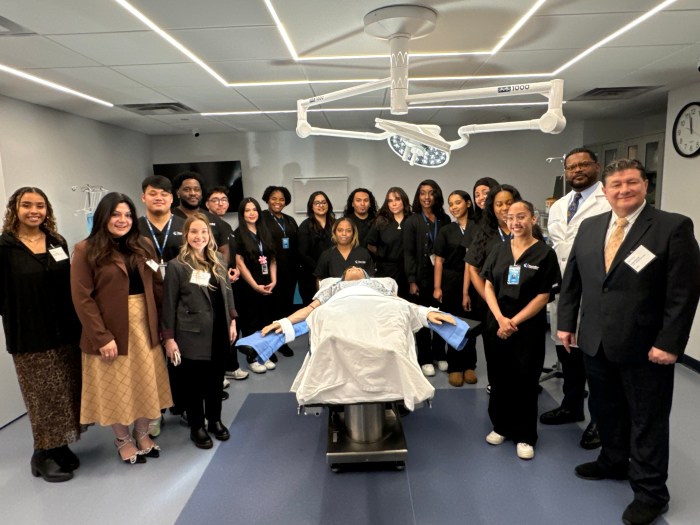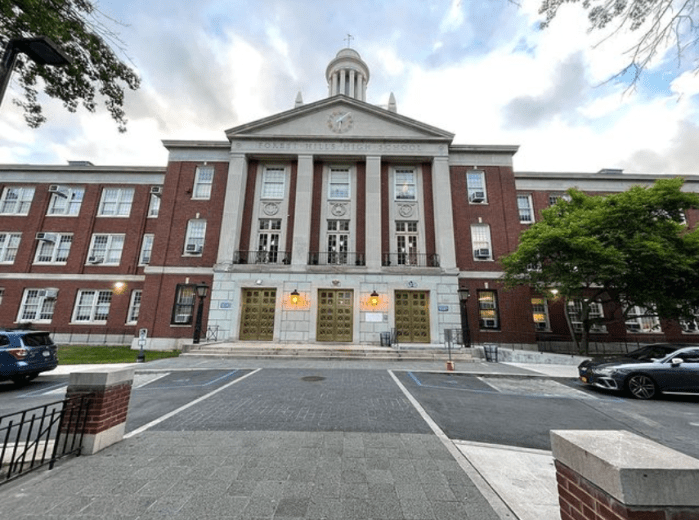By The Greater Astoria Historical Society
For more than 30 years, Queens native Michael Landon entertained American television audiences with family-friendly shows such as “Bonanza,” “Little House on the Prairie” and “Highway to Heaven.”
Born Eugene Maurice Orowitz in Forest Hills in 1936, he was the child of a mixed marriage with a Jewish father and Irish Catholic mother. His parents moved to New Jersey in 1941 and raised him and his older sister Evelyn as Jewish.
He was bar mitzvahed at the Conservative Temple Beth Sholom in Hadden Heights, a neighborhood that had barred Jews until after World War II. It was this sense of being different and an outsider that inspired his creativity and pushed him to be an athlete in his youth and, later as an adult, a writer and director. Themes of tolerance, both racial and religious, would be central to his later writing for television.
Landon was a star javelin thrower at Collingswood High School, throwing a U.S. high school record of 133 feet 4 inches in 1954, earning him an athletic scholarship to the University of Southern California.
A career-ending shoulder injury led him to turn to acting. Choosing the name “Michael Landon” randomly out of the phone book, a persona was born. Early on, Landon achieved some measure of success in film with lightweight fare such as “I Was a Teenage Werewolf” (1957) and “High School Confidential” (1958), and even a role in the controversial “God’s Little Acre” (1958).
But it was the Western genre that would lead to Landon’s stardom with the supporting role of Little Joe Cartwright in “Bonanza” in 1959. By 1961, Bonanza was the No. 1 show on American television, completing 14 seasons and more than 430 episodes. It ran till 1973.
When it became clear “Bonanza” was winding down its long run, Landon began developing for television the “Little on the Prairie” series of books that had been popular in the 1930s by author Laura Ingalls Wilder (1867-1957).
Although not a Western like “Bonanza,” “Little House” had enough rural themes and took place in the post-Civil War era as well, so audiences only had a gentle leap to make with Landon into the new series. In addition, “Little House” had a large ensemble cast of adults and children, so Landon, although technically the marquee star, did not have to shoulder the whole show and could concentrate on his producing, directing and writing duties.
“Little House” ran for nine seasons and ended production in 1983.
Landon had another series, “Highway to Heaven,” ready to premiere in 1984. Leaving the period dramas behind, Landon played the role of Jonathan, an angel on probation sent back to Earth. “Highway to Heaven” ran for five seasons.
After “Highway” ended, Landon developed some movies and had another series, “Us,” in production, but in early 1991 he was diagnosed with pancreatic cancer. He famously appeared on “The Tonight Show with Johnny Carson” May 9, 1991, to denounce tabloid rumors and vowed to fight the disease.
He died July 1, 1991.
Although it is now more than 20 years since his death, Landon is fondly remembered for his consistent acting in family-friendly television series and gentle admonishments for both religious and racial tolerance.
Notable quote: “I want people to laugh and cry, not just sit and stare at the TV. Maybe I’m old-fashioned, but I think viewers are hungry for shows in which people say something meaningful.”
For more information, call 718-278-0700 or visit astorialic.org.



































